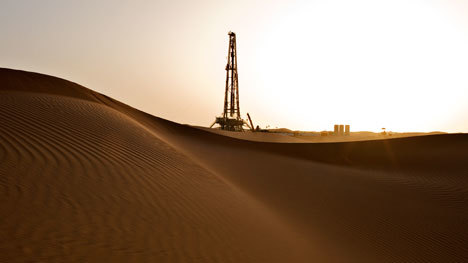
Algerians took to the streets in their millions for the sixth straight Friday of nationwide protests, trying to push their ailing president from power and bring down a political system seen as corrupt and out of touch.
Security forces used a water cannon and lobbed tear gas against a crowd that broke through a blockaded street leading to the presidential palace – the only break in what have been massive but peaceful demonstrations.
For the first time, all three state TV channels showed the protests live – a stark difference since the mass marches started on February 22 and news blackouts were ordered.
It also reflected the changing balance of power within the ruling class as President Abdelaziz Bouteflika, 82 and ailing after a 2013 stroke, loses key supporters.
Protesters marched in cities across the North African nation.
Tens of thousands massed in the boulevards of Algiers, dominated by young people and their families.
Police helicopters circled overhead and riot police vans lined sensitive neighbourhoods, but the mood was largely festive.
It was the first protest since the army chief called earlier this week for the constitutional process to declare Mr Bouteflika unfit for office.
Other politicians and parties backed the idea as a solution to the gas-rich country’s political crisis.
The protests have turned the tables on the elite power structure, but it remained unclear what lies ahead.
Protesters see the army chief’s proposal as a way for the secretive political elite to keep their grip on power and name a hand-picked successor to Mr Bouteflika, who has been largely out of the public eye since his stroke.
Anger at the constitutional process was central to Friday’s protest. Many held signs calling for the departure of army chief Ahmed Gaid Salah, or referring to Article 102 of the constitution, which
Mr Salah proposed using to pave the way for Mr Bouteflika’s removal.
One sign accused the political elite of being “Ali Baba and the 40 Thieves”. Another read “Not Moscow, Not Paris, Not Washington – The Choice should be Algerian”, in reference to concerns of foreign interference in the crisis.
A former French colony with close ties to Paris, Algeria was a powerful ally of Moscow in the Soviet era but in recent years has also become a key partner of the US and Europe in fighting terrorism.
Frustration also targeted Mr Bouteflika’s brother Said. A small group of protesters started shoving journalists from Ennahar Television, considered close to him, shouting “Shame!”, before other protesters separated them.
When the protests broke out last month, the demonstrators’ anger was more focused on Abdelaziz Bouteflika himself, and demands that he abandon his bid for a fifth term after 20 years in power.
Since then, he has dropped his election bid but also cancelled the April 18 vote pending electoral reforms, raising fears he would cling to power indefinitely.
He is credited with bringing peace to Algeria after the bloody civil war of the 1990s, but some of his most powerful supporters have turned against him this week.
The protesters are notably angry at corruption. An Algerian media executive who was detained on Thursday and released hours later said he was arrested because he publicly denounced political corruption.